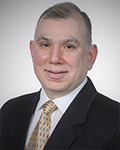
Khalid M. Kamal, MPharm, PhD is a professor and chair of the Department of Pharmaceutical Systems and Policy at West Virginia University School of Pharmacy. He completed his Bachelors in Pharmacy (1994) and Masters in Pharmacology (1996) from Bombay College of Pharmacy, Mumbai, India and received his PhD in health outcomes research (2005) from the Department of Pharmaceutical Systems and Policy, West Virginia University in the United States. Prior to joining West Virginia University, Dr Kamal was a tenured professor at Duquesne University School of Pharmacy (2005-2020). He has been a visiting professor teaching pharmacoeconomics and decision modeling courses at institutions such as Kobe Gakuin University in Japan and King Saud University in Saudi Arabia. Dr Kamal has also been involved in establishing international faculty and student exchange programs in Japan, India, and Saudi Arabia.
Dr Kamal's primary research and teaching interests have been pharmacoeconomics, patient-reported outcomes research, and improving quality of care using real-world data sources such as electronic medical records and specialty pharmacy data. Over the years, his research has focused on issues such as cost-effectiveness of treatments, quality of life, productivity costs, economic burden of diseases, and issues related to quality of care in chronic and rare conditions. Dr Kamal's scholarship has yielded over 75 peer-reviewed publications and 3 research-based book chapters. He has also disseminated his work via 130 research presentations at national and international meetings. Among his awards are the 2010 Duquesne University School of Pharmacy Faculty Award for outstanding contributions in teaching, research, and service; best poster award at the 2021 meeting of the Academy of Managed Care Pharmacy (AMCP) Nexus; top poster award at the 2015 annual meeting and expo of National Association of Specialty Pharmacy (NASP); second prize in the student research presentation category at the 2014 annual meeting of Drug Information Association (DIA); best paper award at the 2010 annual meeting of the AMCP; and the 2006 Association of Rheumatology Health Professionals Graduate Student Award.
As a member of ISPOR since 2000, Dr Kamal has held several leadership positions and volunteer roles and actively contributed to ISPOR’s mission and activities. Some of his current roles include serving as the chair (2019-2023) of the Faculty Advisory Council and as a member of the Health Science Policy Council and Education Council. He is also a co-guest editor on a themed issue on prescription drug pricing to be published in Value in Health in March 2023. In the past, Dr Kamal served as the co-chair of the Oncology Special Interest Group (2016-2019), was the faculty advisor of Duquesne University ISPOR Student Chapter (2006-2020), and moderated a number of podium and student research sessions at ISPOR annual conferences. Outside of ISPOR, Dr Kamal currently serves on the Editorial Advisory Board of the Journal of Managed Care and Specialty Pharmacy (2023-2026) and on the Board of Directors of Attawheed Islamic Center in Carnegie, PA (2022-2025).
ISPOR Vision Statement by Khalid M. Kamal
I’m honored to be nominated for a member of ISPOR’s Board of Directors and hope to continue to facilitate ISPOR’s ongoing efforts in 3 critical areas—educational trends in health economics and outcomes research (HEOR), engagement with key stakeholders, and global outreach. I have been actively involved with ISPOR for the last 23 years. The diverse set of roles performed and interaction with a wide variety of constituents have given me a unique perspective in my contributions to ISPOR’s mission and activities which are aligned with the Strategic Plan Update 2024.
In the last 25 years, ISPOR has become a dedicated steward of effective, well-balanced, and high-quality HEOR education, training, and mentoring. In order to prepare current and future students and other healthcare professionals, it must be a priority that our scientific methods and best practices stay current and forward-looking. In that regards, I am committed to continuing ISPOR’s efforts in providing mentoring and leadership opportunities to the next generation of HEOR professionals. My work as chair of the Faculty Advisory Council and also with some international exchange programs have given me a unique perspective on HEOR-related educational policies and trends both nationally and internationally. The Faculty Advisory Council goal was to maintain a steady growth of student chapters across the globe. To better serve the growing needs of the Council constituents, 3 regional leads (Latin American, EMEA, Asia Pacific) and 2 chair-elect positions were created. These organizational changes helped the council to fully support student members’ and faculty advisors' professional development in the field of HEOR. Another large and ongoing effort for the Faculty Advisory Council is to involve more PharmD students in the health outcomes field. The Council team worked with faculty advisors to understand the implementation of the ISPOR HEOR Competency Framework at the graduate program level. These initiatives have helped ISPOR engage and expand its membership and added significant value to the student and faculty educational experiences. I strongly feel that this is a critical area that will have a decisive influence on the growth of HEOR field.
Another critical area is to continue our efforts to engage our key stakeholders. Our growth is continuously being shaped by changes in the healthcare system and advances in our profession, which necessitate a sustained commitment to working together. The Faculty Advisory Council team has regularly engaged with different groups like Student Network, Institutional Council, and some special interest groups, which has spurred innovative ideas and creativity. Finally, ISPOR should establish strong and productive partnerships in regions like Latin American, Middle East, and Asia Pacific. Through global outreach initiatives, ISPOR’s international collaborations should continue to share training and expertise in countries where HEOR is gaining prominence. There is also a need to gauge current and future global-level changes and extend our influence beyond our annual conferences so ISPOR can continue to deliver its core mission.
If elected, it will be an honor to serve as a member of ISPOR’s Board of Directors and continue together on this exciting journey to fulfill the mission and goals of our Society.
